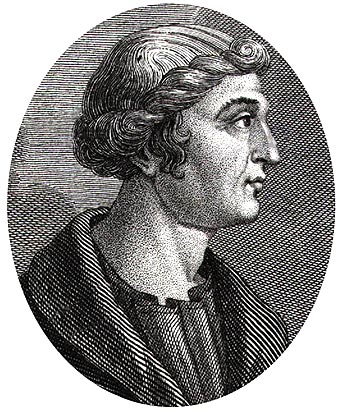
Cassius Dio
Lucius Cassius Dio (c. 165 – c. 235),[i] also known as Dio Cassius (Greek: Δίων Κάσσιος Dion Kassios), was a Roman historian and senator of maternal Greek origin. He published 80 volumes of the history of ancient Rome, beginning with the arrival of Aeneas in Italy. The volumes documented the subsequent founding of Rome (753 BC), the formation of the Republic (509 BC), and the creation of the Empire (27 BC) up until 229 AD, during the reign of Severus Alexander. Written in Ancient Greek over 22 years, Dio's work covers approximately 1,000 years of history. Many of his 80 books have survived intact, or as fragments, providing modern scholars with a detailed perspective on Roman history.
This article is about the historian. For the later consul who was a descendant, see Cassius Dio (consul 291).Biography[edit]
Lucius Cassius Dio[ii] was the son of Cassius Apronianus, a Roman senator and member of the Cassia gens, who was born and raised at Nicaea in Bithynia. Byzantine tradition maintains that Dio's mother was the daughter or sister of the Greek orator and philosopher, Dio Chrysostom; however, this relationship has been disputed. Although Dio was a Roman citizen, he wrote in Greek. Dio always maintained a love for his hometown of Nicaea, calling it "my home", as opposed to his description of his villa in Capua, Italy ("the place where I spend my time whenever I am in Italy").[4]
For the greater part of his life, Dio was a member of the public service. He was a senator under Commodus and governor of Smyrna following the death of Septimius Severus; he became a suffect consul in approximately the year 205. Dio was also proconsul in Africa and Pannonia. Severus Alexander held Dio in the highest esteem and reappointed him to the position of consul in 229. Following his second consulship, while in his later years, Dio returned to his native Bithynia, where he eventually died.[3][9]
Dio was either the grandfather or great-grandfather of Cassius Dio, consul in 291.[10]